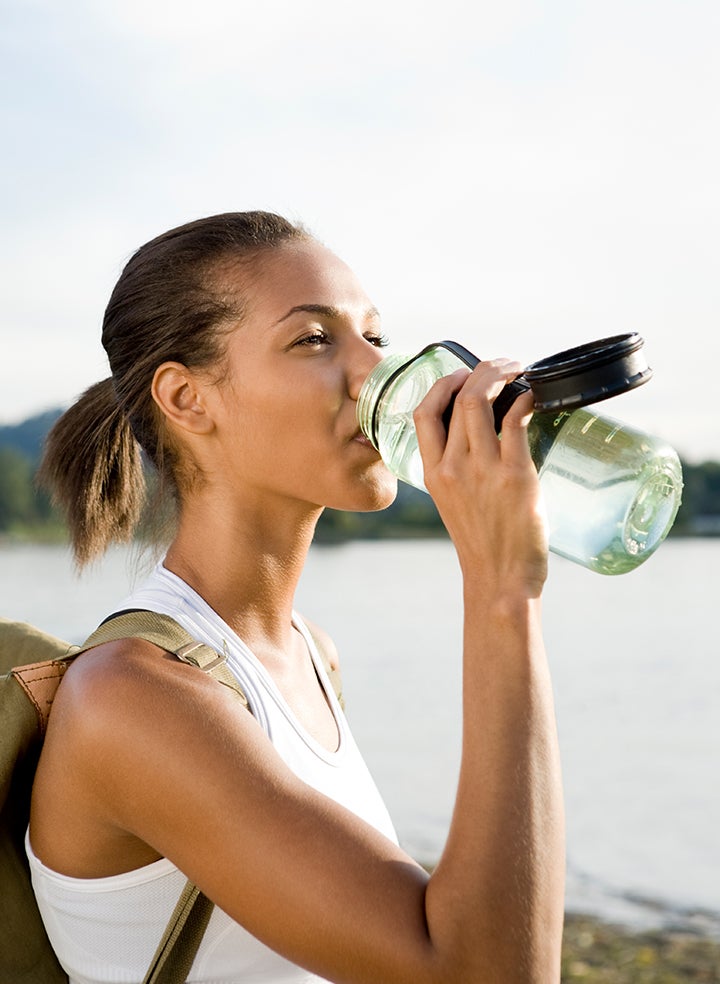Benefits of Drinking Water
Drinking water has many benefits, including in your weight loss journey. Here are 3 ways drinking water can benefit you.

When starting a weight loss plan, people tend to focus on food: What should I eat? How much of it? And when? While nutrition is, as we know, a hugely important part of losing weight, proper hydration can be just as crucial to your weight loss journey. Why is this? Let’s break it down.
Hydration is critical to overall health.
Your body is 50% water — it is in every single cell, tissue, and organ — and relies on it to complete many different jobs. Water regulates body temperature, lubricates and cushions joints, protects the spinal cord and other sensitive tissues, and flushes waste. When you become dehydrated, your body is less capable of performing these tasks, and you can become ill. Staying healthy and hydrated is a good basis for losing weight.
What we drink can greatly affect whether we lose or gain weight.
When approaching hydration, you should apply the same three questions you apply to food: What should I drink? How much of it? And when?
The answer to the first question is simple: water, water, water. Water has zero calories and is, as mentioned, essential to your overall health and well-being. Many people do not realize that the soda or juice they are drinking is adding many empty calories to their diet and maybe sabotaging their weight loss goals. When you really need to switch it up, the best alternatives are zero-calorie flavored water, non-fat or reduced-fat milk, unsweetened tea, and diet soda.
As for how much, the Institute of Medicine recommends that men consume three liters (about 13 cups) and women consume 2.2 liters (about 9 cups) of total beverages a day. When you exercise, you need to drink more water. Read this helpful handout for guidelines on how to stay properly hydrated when exercising. Other factors that influence recommended water intake include the environment, illness, and breastfeeding. Talk to your doctor if you one of these factors applies to you.
Drink water throughout the day, but especially in preparation for, during, and after exercise (as outlined in the aforementioned handout), or when in particularly hot environments, sick, pregnant, and/or breastfeeding.
Staying hydrated doesn’t have to be a chore. Keep these tips and tricks in mind (courtesy of the CDC):
Water > any other liquid. Always choose water over sugary beverages; substituting water for one 20-ounce sugar-sweetened soda will save you roughly 240 calories.
Carry a water bottle with you at all times.
Freeze water bottles for an easy-to-grab water bottle that will stay cold all day.
Put a wedge of lime or lemon in your water to add a little kick.
As with all tips and suggestions, you should only apply them with the approval of your healthcare provider. Some people have special hydration needs because of an illness or health condition; if your healthcare provider has advised you to restrict or increase your fluid intake, always follow their advice.
